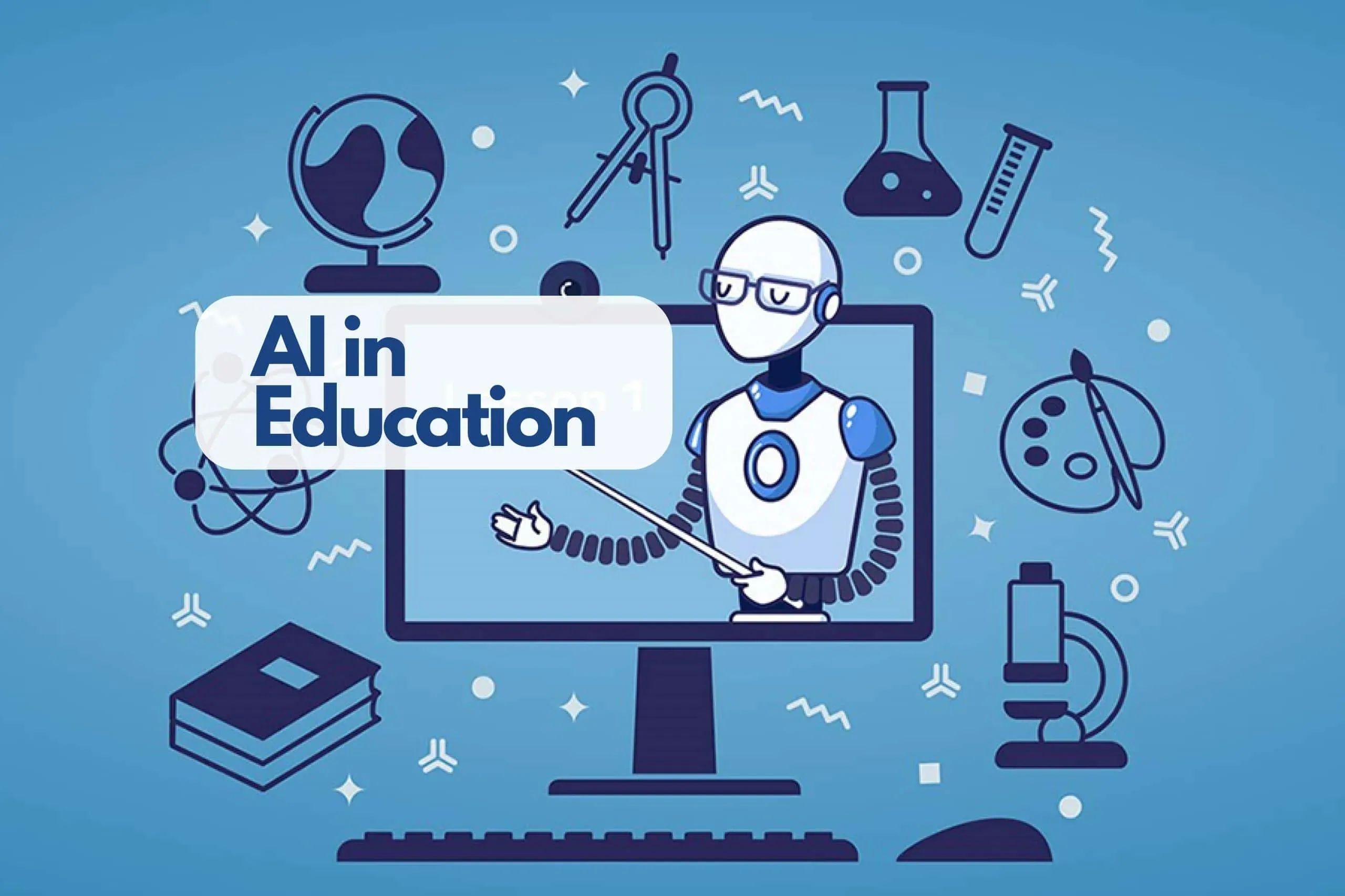AI in education is transforming the way students learn, offering innovative solutions for personalized learning with AI that cater to individual needs. As AI tools for teachers become increasingly integrated into classrooms, the impact of AI on students is profound, shaping their educational experiences in real-time. Recently, initiatives such as the American Federation of Teachers’ new AI training hub highlight a commitment to equipping educators with the necessary skills to effectively deploy these technologies. With a significant focus on AI educational initiatives, this training aims to enhance lesson planning and student engagement through advanced AI resources. As schools embrace these tools, the future of education looks to foster a more dynamic and interconnected learning environment that prepares students for the demands of the modern world.
The integration of artificial intelligence within the educational landscape represents a pivotal shift in pedagogical practices and student engagement strategies. Innovative technologies, often referred to as intelligent learning systems, are enhancing the educational experience by allowing teachers to tailor instruction based on individual student performance. These developments not only signal an evolution in how knowledge is imparted but also emphasize the importance of ensuring that educational stakeholders fully understand and embrace these tools. As institutions invest in training programs to enhance teacher proficiency with AI resources, the discourse around the role of technology in learning will evolve, prompting critical discussions about its implications and potential to transform schooling.
The Rise of AI Tools for Teachers
AI tools have revolutionized the way educators approach lesson planning and student engagement. With the establishment of dedicated AI training hubs, teachers are now equipped to integrate technology effectively into their classrooms. These AI resources are designed to assist teachers in creating diverse learning materials, from interactive quizzes to engaging lesson plans, that cater to the varying needs of students. As such, educators are increasingly recognizing the value of AI in helping them manage curriculum demands while enhancing the educational experience for their students.
Moreover, AI tools provide the potential for teachers to automate routine tasks, allowing them to focus more on fostering meaningful relationships with their students. For example, automating grading allows teachers to provide timely feedback while reducing their administrative burden. This capability can ultimately lead to improved educational outcomes, as teachers can devote more time to instructional methods that promote student success and engagement.
AI Training in Schools: Empowering Educators
The recent initiative by the American Federation of Teachers (AFT) to establish AI training hubs signifies a growing acknowledgment of the necessity for professional development in the realm of AI education. With significant backing from organizations like Microsoft and OpenAI, these workshops aim to upskill teachers in utilizing AI tools adeptly. This training is not only about familiarizing educators with technology; it’s about empowering them to harness AI’s potential to enhance learning experiences and outcomes for all students.
By offering comprehensive AI training, educators can learn to design curricula that integrate AI applications more seamlessly into their teaching practices. When teachers are better equipped to use these resources, they can create personalized learning experiences tailored to each student’s needs, thus improving engagement and retention rates. As AI becomes an essential element of the educational landscape, the emphasis on teacher training ensures that educators are at the forefront of this evolution.
Personalized Learning with AI: A New Era of Education
One of the most significant contributions of AI in education is its ability to support personalized learning experiences. AI-driven tools gather data on student performance and learning styles, enabling the development of customized educational pathways. This individualized approach allows teachers to address varied learning paces and styles, ensuring that all students can thrive academically.
The move towards personalized learning powered by AI has been shown to significantly enhance student engagement and motivation. As students receive tailored resources and instant feedback, they are more likely to take ownership of their learning process. Furthermore, the ability for educators to easily adapt instructions based on data analytics strengthens the teacher-student dynamic, fostering a more supportive learning environment.
Impact of AI on Students: Benefits and Concerns
The introduction of AI tools in the classroom has sparked an essential conversation about the benefits and potential drawbacks for students. On one hand, AI facilitates quicker access to information and personalized academic support, which can accelerate learning and foster success in various subjects. Students can utilize AI tools for research, homework assistance, and exam preparation, thus augmenting their traditional learning methods.
Conversely, concerns have been raised about the over-reliance on AI among students. Critics argue that the convenience provided by AI tools, such as ChatGPT, could discourage critical thinking and creativity, as students may resort to using AI-generated content rather than developing their own ideas. It’s crucial for educators to address these challenges by teaching students about responsible AI usage while emphasizing the importance of critical assessment and analytical thinking.
AI Educational Initiatives: Shaping the Future of Learning
Recent initiatives promoting AI in education reflect a progressive shift towards integrating advanced technologies into learning environments. Programs funded by tech companies aim to introduce AI capabilities into K-12 education, equipping students with essential skills for future workforce demands. These initiatives not only involve educators in the training process but also advocate for transparent practices that prioritize student well-being.
As AI becomes more prominent in classrooms, collaboration between educators and AI companies will be vital in shaping effective educational strategies. It is imperative that these initiatives address the concerns of educators regarding job security and pedagogical integrity. A balanced approach can ensure that AI serves as a tool for enrichment rather than replacement, improving educational outcomes while safeguarding the essential role of teachers.
The Role of Educators in AI Integration
Educators hold a critical position in the integration of AI into the classroom, as they are the ones who navigate the complexities of teaching while leveraging new technological advancements. The involvement of teachers in AI training programs ensures they have a substantial voice in how these tools are implemented, thus defining their role as not merely consumers of technology but active participants in educational innovation.
By engaging in discussions about the ethical implications and potential impact of AI on learning, educators can better advocate for their students and shape how AI tools are applied in the classroom. It is essential for teachers to remain informed about the benefits and risks associated with these technologies, allowing them to make well-rounded decisions that prioritize educational quality and student development.
AI Literacy: Preparing Students for a Tech-Driven Future
As AI continues to permeate various sectors, fostering AI literacy in students has become increasingly vital. Schools must prioritize teaching students not only how to use AI tools effectively but also understanding the ethical implications of technology in society. This includes cultivating skills such as critical thinking, problem-solving, and digital citizenship which are essential for navigating a future where AI is ubiquitous.
Equipping students with the ability to critically evaluate AI-generated information helps them discern between reliable and unreliable sources, thereby empowering them to become informed consumers of technology. Moreover, incorporating AI literacy into the curriculum prepares students for future careers in an AI-driven job market, where adaptability and technological proficiency will be crucial.
Risks of AI Implementation in Education
While the integration of AI in education presents numerous advantages, it is crucial to recognize and address the potential risks associated with these technologies. Concerns regarding data privacy, misinformation, and the erosion of personal interactions in learning environments must be central to discussions on educational AI initiatives. For instance, there is a risk that students may rely too heavily on AI tools for their assignments, undermining the development of critical thinking and independent learning skills.
Additionally, the influence of large tech corporations on educational policies raises ethical questions about accountability and transparency. It is vital for educators to engage in ongoing dialogue about the implications of AI use in classrooms, ensuring that the introduction of technology serves to enhance educational practices rather than detract from the critical human elements of teaching and learning.
The Future of AI in Education: Trends and Predictions
Looking ahead, the role of AI in education is set to expand dramatically as technological advancements continue to evolve. Researchers and educators alike are exploring innovative ways to leverage AI to support diverse learning needs and facilitate more inclusive educational environments. Trends such as gamified learning, AI-powered tutoring systems, and augmented reality experiences will likely redefine the traditional classroom setting.
As educators experiment with these emerging technologies, it is essential that they maintain a focus on ethical considerations and the well-being of students. The future of AI in education hinges on collaboration between educators, policymakers, and tech companies, ensuring that developments align with educational goals that prioritize student success and foster critical thinking.
Frequently Asked Questions
What are some effective AI tools for teachers in education?
AI tools for teachers are revolutionizing the classroom, providing innovative solutions for lesson planning and classroom management. Examples include AI-driven platforms for generating quizzes and personalized learning experiences for students, allowing educators to focus on teaching.
How is AI training in schools being implemented?
AI training in schools is becoming a priority, highlighted by initiatives like the American Federation of Teachers’ training hub, backed by significant funding from tech giants. These programs equip educators with skills to effectively use AI tools in their teaching practices.
What is personalized learning with AI and how does it benefit students?
Personalized learning with AI tailors educational experiences to individual student needs, enhancing engagement and retention. By analyzing learning patterns, AI can recommend resources or adapt assignments, ensuring that each student receives support at their own level.
What is the impact of AI on students’ learning experiences?
The impact of AI on students is profound, as it transforms how they interact with content and complete assignments. While AI can offer immediate feedback and assist with tasks, concerns arise about critical thinking skills, as some students may lean too heavily on AI tools.
What educational initiatives are being driven by AI companies?
AI companies are increasingly driving educational initiatives by integrating their technologies into K-12 classrooms. Programs often focus on providing tools that enhance learning, such as study companions and personalized tutoring, designed to engage students in innovative ways.
What concerns do educators have regarding the use of AI in education?
Educators express mixed feelings about AI in education, citing benefits like reduced workload and enhanced instruction, while also raising concerns over dependency, privacy issues, and the potential for AI to undermine critical thinking skills among students.
How are educators ensuring responsible AI use in classrooms?
To promote responsible AI use in classrooms, educators advocate for transparent guidelines and practices, emphasizing the need for training that covers both effective usage of AI tools and strategies to mitigate risks associated with their convenience.
What role do tech billionaires play in education AI initiatives?
Tech billionaires are heavily influencing education AI initiatives, raising concerns that their motivations may focus more on profit than educational integrity. As AI integration grows, it’s crucial to ensure that teachers and educators have a voice in how these technologies are implemented.
How can AI educational tools affect students’ critical thinking?
AI educational tools can have a dual effect on students’ critical thinking. While they provide immediate access to information and resources, over-reliance on these tools may hinder the development of analytical skills if students do not engage critically with the content presented.
What strategies can be implemented for effective AI integration in education?
Effective AI integration in education requires a comprehensive strategy that includes training for educators, establishing ethical guidelines, and ensuring continuous engagement from students and teachers alike to foster an environment where AI enhances learning rather than diminishes it.
| Key Points | Details |
|---|---|
| Integration of AI in Education | AI tools are increasingly used in learning and completing schoolwork and a training hub for educators will enhance teacher skills. |
| Funding for AI Training | The AFT’s AI training hub is funded by $23 million from Microsoft, OpenAI, and Anthropic. |
| Training Workshops | The hub will offer workshops in New York City this fall for teachers to learn how to use AI tools effectively. |
| Diverse Perspectives | While some teachers find AI helpful for managing workload, others worry about impacts on critical thinking and job security. |
| Government Support | The Trump administration encouraged AI integration in K-12 education despite cuts to educational funding. |
| AI Engagement in Classrooms | Companies like Google and Anthropic are actively marketing their AI tools for younger users and schools. |
| Impact on Students | Reports indicate that students are using AI tools like ChatGPT for completing assignments, raising concerns about learning. |
| Need for Responsible AI Training | Training must also focus on the potential pitfalls of AI usage in education to prevent misuse. |
| Teachers’ Experiences | Educators express that AI can enhance personalized learning but are wary of profit-driven motives of tech companies. |
| Community Input | Educators are involved in shaping the curriculum for AI training to ensure privacy and transparency. |
Summary
AI in education is reshaping the learning landscape by integrating advanced tools into classrooms. With significant support from organizations like the AFT and funding from major tech companies, educator training is being prioritized to equip teachers with the skills necessary to navigate this evolving educational paradigm. However, there are varied opinions on AI’s impact on student learning and teacher roles, underscoring the importance of responsible implementation and the involvement of educators in shaping AI’s applications in schools.



